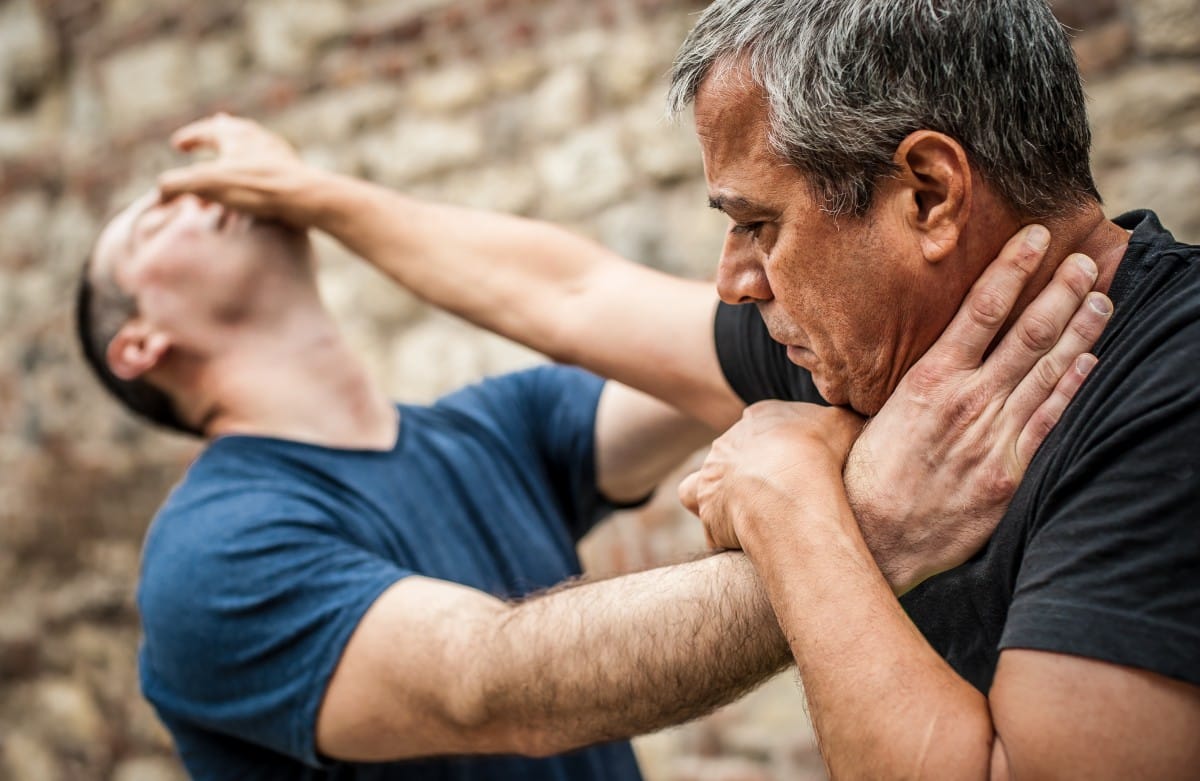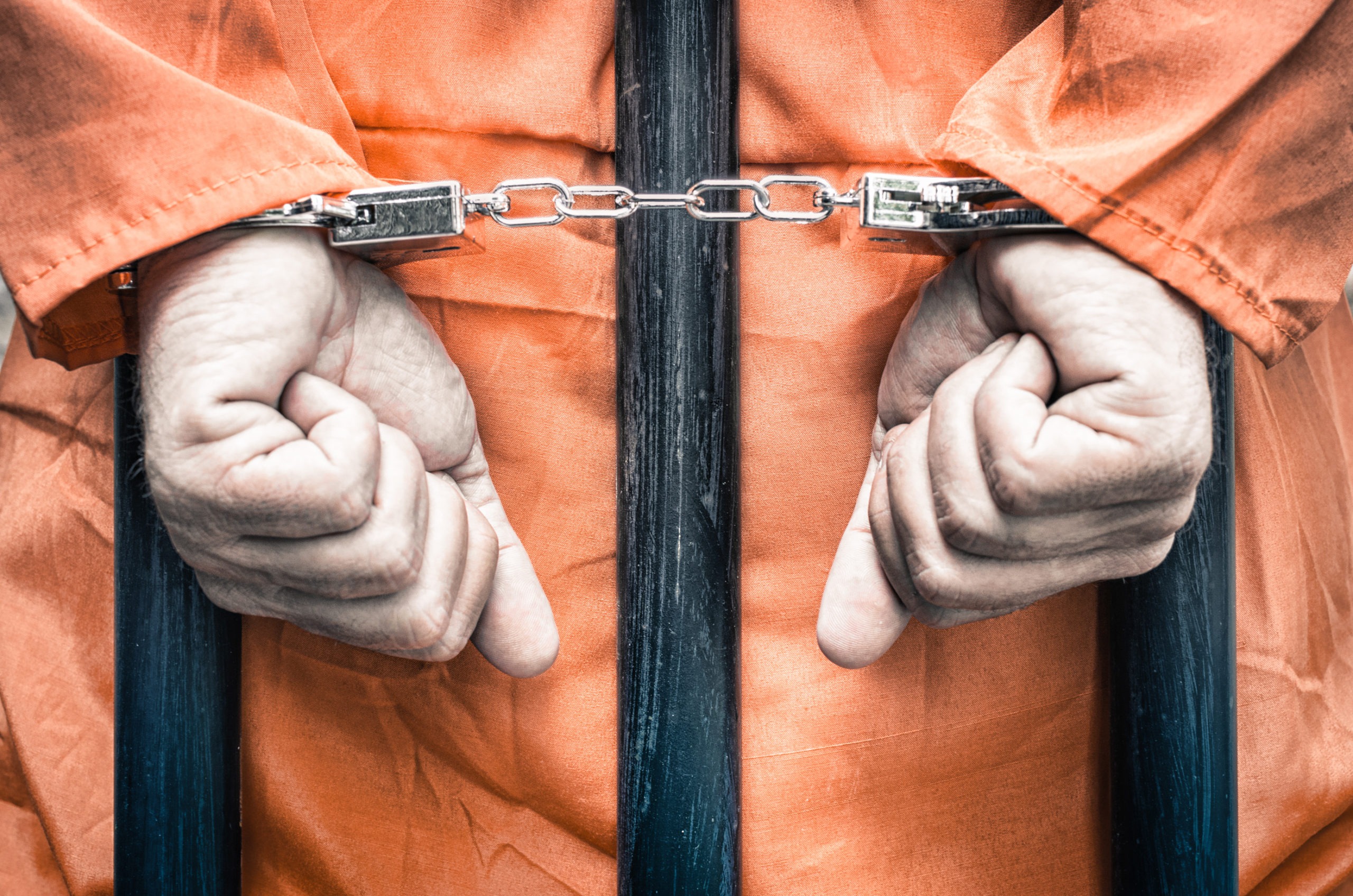Dive into the complexity of what is aggravated assault—an eye-opening journey through its definitions, real-life scenarios, and the ripple effect of its consequences. Uncover the gravity of this offense and its profound impact on society and individuals alike
Aggravated assault is a serious crime that’s worse than a regular fight. It involves making a situation much more dangerous, like using a weapon or hurting someone very badly. Unlike a simple fight, aggravated assault is way more serious because it causes greater risk or harm to the person.
Do you ever think about what is Aggravated assault? It is not your average argument or simple fight—it’s way more intense and can have some serious consequences. Picture this: someone purposely trying to hurt another person really badly or scaring them a lot, sometimes even using dangerous stuff like weapons. But what makes it ‘aggravated’? It’s when things escalate, getting way more dangerous or harmful than a typical scuffle.
It’s akin to entering a more serious legal territory. In this article, we’re delving deeply into the actual meaning of this term, providing real-life examples to aid our understanding, and revealing the consequences when someone faces legal repercussions for aggravated assault. Get ready, because we’re about to explore the intricate details and the influence it can have on someone’s life.
What is aggravated assault?

Aggravated assault is an extremely severe form of attack that surpasses a typical altercation. It occurs when someone deliberately inflicts significant harm on another person or causes intense fear, often by using a weapon or causing severe injuries. It’s way more serious than just arguing and makes things very dangerous.
For instance, using a knife or gun to threaten or harm someone is categorized as aggravated assault. Similarly, if a person sustains severe injuries during a fight, like broken bones or requiring hospitalization due to the injuries, that could also fall under this type of assault.
If someone is convicted of aggravated assault, they could encounter serious legal repercussions, possibly leading to a lengthy prison sentence or substantial fines. Furthermore, it’s not just about completing the punishment; it can affect various aspects of their life. This emphasizes the importance of understanding the severity of causing significant harm or inducing extreme fear in someone, as it can result in serious and enduring consequences.
How much is an Aggravated assault sentence?
The punishment for aggravated assault can differ greatly depending on various elements.
One big thing is the laws in the state or country where the crime happened. Also, how serious the attack was, if weapons were used, how much harm was done, and if the person did bad things before can all really affect what happens next. Punishments for aggravated assault are usually really tough. Individuals found guilty of this offense might encounter:
Prison time
People who are proven guilty may face aggravated assault sentence for a few years or even many decades, particularly if the attack caused serious injuries, included using lethal weapons, or is considered a really serious crime.
Monetary fines
People found guilty may face aggravated assault sentence including substantial fines, frequently reaching thousands or even tens of thousands of dollars.
Probation
Sometimes, instead of or in addition to going to jail, a judge might decide that a person should be on probation. Probation means the person has to follow strict rules like meeting often with a probation officer, going to counseling, or doing community service as an aggravated assault sentence.
Legal variations and considerations
Laws about punishment can be very different depending on where the crime happened. Some places might have the lowest punishment set for certain severe assaults.
Aggravated assault is a severe crime that can cause significant legal issues such as going to jail, paying big fines, or being put on probation. The consequences depend on what happened in each case and the laws in the place where it occurred. Understanding how serious aggravated assault sentence is shows why it’s so important to obey the law and avoid doing things that could lead to such serious problems.
Is aggravated assault a felony?

In many places, aggravated assault is a felony, although this can change based on the rules of the state or country where the crime occurred and the specific details of the attack.
Aggravated assault is different from simple assault because it’s more serious. This might involve using a dangerous weapon, causing severe injuries, or targeting certain people, like a police officer or someone who needs extra protection. Because it’s very serious and can cause a lot of harm to the victim, aggravated assault is often considered a felony. Felonies are more serious than misdemeanors and can lead to tough punishments such as longer time in jail, big fines, and other legal problems.
However, is aggravated assault a felony or a misdemeanor can vary depending on the laws of the place where the crime happened. Some states or countries have different levels of assault charges, and the final decision might rely on how bad the assault was, following the local laws.
First time aggravated assault charges
When someone faces first time aggravated assault charges, what occurs next can greatly vary, depending on several factors. This includes the location where it took place, the severity of the incident, and whether the person has a history of previous wrongdoing. Here’s a general idea of what could occur:
Legal process
In first time aggravated assault charges, authorities may investigate the incident afterward, and if they suspect it was aggravated assault, they might arrest the individual. Afterward, the legal representatives who manage the case in court (referred to as the prosecution) will formally charge the person with the crime.
Court appearance
In first time aggravated assault charges, the individual accused of the crime will attend a legal process known as arraignment. During this, they’ll be informed about the charges against them and have the chance to say whether they believe they committed the offense or not.
Legal penalties
If in first time aggravated assault charges, someone is accused of seriously harming someone for the first time, it can lead to serious consequences. This might involve going to jail for an extended period, facing hefty fines, or being under legal supervision even after resolving the issue.
Legal defense
It is important to have a lawyer if you have been accused of a serious problem. The lawyer can help reduce the punishment by talking to the judge. They might try to prove the charges are too harsh or find ways to defend the person. Also, they could talk to the court to see if there’s a way to make the punishment not as bad. This can happen in case of first time aggravated assault charges.
Impact on future
Even if it’s a first, harming someone can create problems. It can make it hard to get a job, get a residence and have normal relations with family.
No prior record
If someone has not been involved in any crime before, then the judge or case in-charge may not give severe punishment if it is first time aggravated assault charge.
Circumstances of the assault
Things like defending yourself or other reasons that make the situation not as bad might change what happens in the case if it is first time aggravated assault charge.
For someone who’s facing big trouble for hurting someone really badly for the first time, it’s really important to talk to a lawyer and know how serious it is. There might be ways in laws by which a person can have their punishment reduced.
What is aggravated assault with a deadly weapon?
Aggravated assault with a deadly weapon is a very serious crime. It occurs when someone purposefully uses a weapon to harm or frighten someone, putting their life in danger. What makes this crime worse is that there was a dangerous weapon involved. Important things to know about this crime are:
Intentional harm or threat
When a person harms another person, they do it intentionally to make them feel afraid, it is called intentional harm. They might use a weapon like a knife or a gun which could injure them.
Elevated risk and severity
Having a dangerous weapon makes things much more serious and dangerous. It could cause really bad injuries or even death. When someone shows or uses a dangerous weapon, it can make the person they’re aiming at very scared and intimidated.
Legal consequences
Using a dangerous weapon to seriously hurt someone is usually seen as a very serious crime called a felony. This can bring really harsh punishments like spending a long time in jail, having to pay a lot of money, being watched by the law even after getting out of trouble, and other legal problems.
Defense and mitigating factors
Seeking legal representation is crucial to present a defense, potentially exploring mitigating circumstances or negotiating for reduced charges. Factors such as self-defense or specific situational contexts might affect the legal outcome.
Impact
Getting in trouble for seriously hurting someone with a dangerous weapon can cause long-term problems. It might mean having a record that stays forever, which could stop you from having certain chances and rights in the future.
Using a dangerous weapon to hurt someone really badly is a very serious crime. It’s because it can cause big harm and uses a deadly thing during the attack.
Aggravated assault with a deadly weapon: first offence
In the law, being accused of seriously hurting someone with a dangerous weapon for the first time is a really serious thing. It’s worse because a dangerous weapon was used, which could really hurt or scare the person. Here’s what might happen in this kind of situation:
Legal implications
If someone gets arrested and accused of using a dangerous weapon to seriously hurt someone for the first time, they’ll have big legal problems. The police will look into what happened, and the people handling the case in court will officially accuse them of the crime.
Court Proceedings
The individual facing the accusation will go to court, and one of the initial steps is called arraignment. During this, they’ll learn about the accusations against them and state if they believe they’re guilty or not. Later, there might be a trial or discussions to resolve the case.
Potential consequences
Facing serious consequences for the first time due to using a dangerous weapon to severely harm someone can lead to significant penalties. This could involve spending many years in jail, paying hefty fines, being monitored by the law even after getting out of trouble, and possibly undergoing counseling or community service.
Getting a lawyer immediately is incredibly important in such situations. A lawyer can help make a defense, maybe talk to the court to make the punishment less severe, find reasons that make the situation not as bad, or try to get a different kind of punishment.
Impact on future
Getting in trouble for using a dangerous weapon to seriously hurt someone can mean having a record that stays forever. This might stop you from getting certain jobs, finding a place to live, or doing other important things in the future.
Legal ramifications
The severity of this crime might create difficulties in getting specific licenses, like for firearms, and might affect how the person is seen in the community.
Mitigating factors
Lack of a criminal record could potentially influence the sentencing or negotiations for reduced charges.
Circumstances of the assault
Things like defending yourself or particular things that happened during the incident could be thought about in court.
When accused of using a dangerous weapon to seriously hurt someone for the first time, it’s really serious. It’s crucial to quickly get help from a good lawyer and understand how serious it is. Talking to a qualified lawyer is really important to handle the legal stuff and maybe make the punishment less serious for this kind of charge.
What is Attempted assault?
Attempted assault, also called “attempted crime,” occurs when someone makes a strong effort to harm someone but doesn’t actually do it. It’s like they try hard to hurt someone, but it doesn’t actually occur. Key points about attempted assault include:
Intent
The individual must have the intention to commit the assault. They must have intended to cause harm or instill fear in another person. This is considered attempted assault.
Substantial steps
These steps must demonstrate a clear, substantial effort towards carrying out the assault. For instance, preparing to physically attack someone, but being stopped before the assault occurs. This is considered attempted assault
Criminal offense
Attempted assault is a crime in itself, treated seriously in the eyes of the law.
Severity
The severity of the charge may vary based on the jurisdiction and the specific circumstances surrounding the attempted assault.
Intent matters
The individual must have the intention to commit the assault, which is a crucial aspect in differentiating an attempted assault from other acts.
Preparation
Preparing or taking actions to carry out an assault, even if the assault itself doesn’t happen, can still be seen as an attempted assault.
Punishment
The consequences for attempted assault can involve fines, probation, doing community service, and sometimes, going to jail, based on how serious it was and the rules of the area.
Legal defence
Legal representation is crucial in presenting defenses, such as lack of intent or establishing that the actions didn’t constitute substantial steps toward an attempted assault
Circumstances
Different things about what happened, like not understanding, defending oneself, or not meaning to do it, could influence what happens in court.
Attempted assault is a serious crime when someone tries but doesn’t succeed in hurting someone. Even if no harm happens, the law still considers the try as a punishable offense. Understanding the legal consequences and getting the right legal advice is really important if you’re dealing with charges linked to attempted assault.
What qualifies as aggravated assault?
Aggravated assault is a serious kind of attack. It includes things that makes the offense worse. These factors that set it apart from a regular attack include:
Use of deadly weapon
The use of dangerous weapons like gun, knife, or anything else to harm a person. This is what qualifies as aggravated assault.
Intent to cause serious harm
An explicit intention to cause severe bodily harm or create a situation that poses a significant risk of serious injury or death. This is what qualifies as aggravated assault.
Serious bodily injury
Causing or trying to cause major physical harm to someone, like breaking bones, causing scars, or making it hard for them to move normally. This is what qualifies as aggravated assault.
Status of the victim
Assaulting specific individuals, such as police officers, healthcare providers, or vulnerable individuals (like children or elderly persons), may elevate the offense to aggravated assault. This is what qualifies as aggravated assault.
Other aggravating circumstances
Various other factors can contribute to the classification of an assault as aggravated, such as the use of force in conjunction with a robbery, domestic violence situations, or hate crimes based on race, religion, or other characteristics. This is what qualifies as aggravated assault.
Legal definitions and jurisdictional variations
The exact criteria for what qualifies as aggravated assault can vary based on the laws of different states or countries. Different places might have different rules about what makes an assault really serious and called “aggravated.” This is what qualifies as aggravated assault.
What qualifies as aggravated assault is when an attack becomes much worse. This could be by using weapons, hurting someone very badly, targeting certain people, or making the risk of harm much higher. Knowing these things is super important to tell the difference between a regular assault and a really serious one. Understanding this helps us know how serious the law sees it and how big the trouble could be.
Conclusion
The stuff we learned about what is aggravated assault shows it’s a whole lot more serious than just a regular fight. It’s like when things get really dangerous, with weapons or causing big injuries. This kind of trouble doesn’t just stop with what happened; it brings huge legal problems too.
Using dangerous stuff to hurt someone might mean going to jail for a long time or having to pay lots of money in fines. It’s usually seen as a really big crime, and that can mess up someone’s life. That’s why it’s super important to follow the rules and not do things that could end up in such serious trouble.
Also, if something like this happens, getting help from a lawyer is really, really important. Understanding what exactly happened and finding ways to make the punishment less serious can make a big difference.




